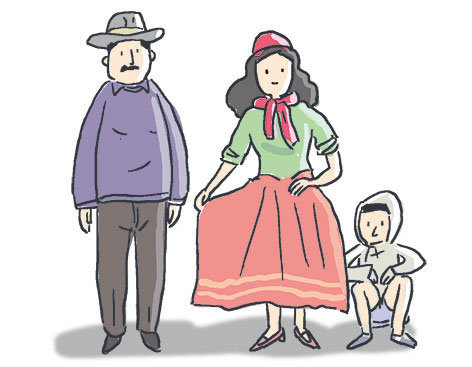Ode to the 20th century
Ode to the 20th century
Posted May. 25, 2022 08:06,
Updated May. 25, 2022 08:06

There are lower people among the low. ‘Roma’ are such people. You might think of Rome in Italy but it refers to Gypsies who have a nomadic lifestyle. They were among the people that Nazis tried to ‘solve’ along with the Jew and mental patients during World War II. They call themselves Roma, not Gypsies.
Europe, which prides itself as a civilized society, does not deserve such a description when it comes to the Roma. While it tried to dry the tears of the Jewish people sacrificed by Nazis, it failed to do so for the Roma. The 20th century was the barbaric time that rated people’s tears. It is not clear but it is estimated that about 0.5 million Roma, or one-third of the population, were killed by Nazis. Rather than offering consolation, European countries burned down Roma’s houses, had them live in places contaminated with heavy metal, and sterilized Roma women.
Roma were abandoned by the world. Roma poet Leksa Manush asks what the 20th century has done for the Roma in his poem “Ode to the Twentieth Century.” “Did you bring the sun into our dark lives? Did you dry the tears from our women's eyes?” he asks. Children could not live like children under such circumstances. “Other children my age love each other, they play. But I have to cry. And since I possess nothing else, I will see you my tears,” another Roma poet Mateo Maximoff says in the voice of a child.
Is it different in the 21st century? It’s still the same that tears are still rated. The Polish, for example, welcome refugees fleeing from war in Ukraine while turning a cold shoulder to the Roma. The duplicity of the poor treatment of Roma refugees for their different ethnicity is not only found in Poland but also across Europe and the world. “Twentieth Century, what did you hold in store for the sad Roma people?” Manush’s protest is still valid in the 21st century.




![17년 망명 끝에, 부모 원수 내쫓고 집권[지금, 이 사람]](https://dimg.donga.com/c/138/175/90/1/wps/NEWS/IMAGE/2026/02/18/133376197.3.jpg)

![[속보]美대법원, 트럼프의 국가별 상호관세 ‘위법’ 판결](https://dimg.donga.com/c/138/175/90/1/wps/NEWS/IMAGE/2026/02/21/133392930.1.jpg)
